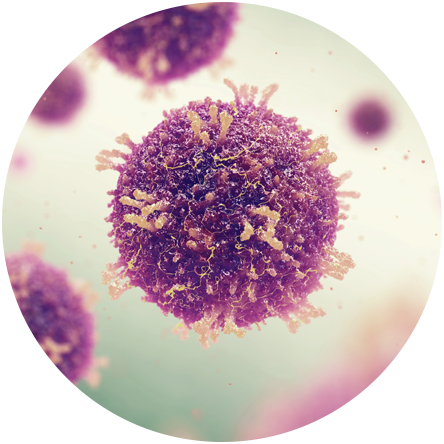Obesity and GLP-1 therapy
Obesity is a major global health concern characterized by an excess accumulation of body fat, defined by a body mass index (BMI) 30 or higher.
The prevalence of obesity has been rising at an alarming rate, contributing significantly to morbidity and mortality worldwide. According to the World Health Organization approximately 13% of the world’s adult population is obese.
The pathogenesis of obesity is complex, and recently a number of studies have linked changes in the gut microbiome in obesity
development. It is suggested that the individuals who are overweight and/or obese may have a specific composition of gut microbiota, which plays an important role in food digestion and energy generation. In addition, the gut dysbiosis leads to altered intestinal permeability and activation of inflammatory processes associated with obesity and type 2 diabetes.
Effective obesity treatment requires a personalized and sustainable approach. One of the newer and promising areas of research in obesity treatment involves the hormone glucagon-like peptide-1 (GLP-1) receptor agonist. GLP-1 therapy results in weight loss up to 15-20% of the body weight. However, this therapy is associated (in 40-70% of treated patients ) with high risk of adverse events, mainly from gastrointestinal system, such as nausea, vomiting, dyspepsia, diarrhea, constipation, and abdominal pain.
Combining GLP-1 receptor agonist with probiotics presents a promising strategy for managing obesity, and offers a synergistic approach by leveraging the complementary mechanisms of these interventions. While GLP-1 receptor agonists effectively promote weight loss and improve glycemic control, probiotics can enhance gut health, reduce inflammation, protects against deficiencies of micro- and macro-elements, and support metabolic functions. This integrated approach could offer a more comprehensive and effective means of combating obesity and its associated health complications.
Ansari HUH, Qazi SU, Sajid F, et al. Efficacy and Safety of Glucagon-Like Peptide-1 Receptor Agonists on Body Weight and Cardiometabolic Parameters in Individuals With Obesity and Without Diabetes: A Systematic Review and Meta-Analysis. Endocr Pract. 2024, 30(2):160-171.
Cox AJ, West NP, Cripps AW. Obesity, inflammation, and the gut microbiota. Lancet Diabetes Endocrinol. 2015, 3:207–15.
Drucker DJ. GLP-1 physiology informs the pharmacotherapy of obesity. Mol Metab. 2022, 57:101351.
Gorgojo-Martínez JJ, Mezquita-Raya P, Carretero-Gómez J, et al. Clinical Recommendations to Manage Gastrointestinal Adverse Events in Patients Treated with Glp-1 Receptor Agonists: A Multidisciplinary Expert Consensus. J Clin Med. 2023, 12(1):145.
Kober AKMH, Saha S, Ayyash M, Namai F, Nishiyama K, Yoda K, Villena J, Kitazawa H. Insights into the Anti-Adipogenic and Anti-Inflammatory Potentialities of Probiotics against Obesity. Nutrients. 2024, 30;16(9):1373.
Zhang L, Wang P, Huang J, Xing Y, Wong FS, Suo J, Wen L. Gut microbiota and therapy for obesity and type 2 diabetes. Front Endocrinol (Lausanne). 2024, 26;15:1333778.
NORDBIOTIC™ studies are designed according to the rules of Evidence Based Medicine

NORDBIOTIC™ technology research is involved into a range of health areas
Are you a company?
Learn more about our solutions.
Visit nordicbiotic.com
